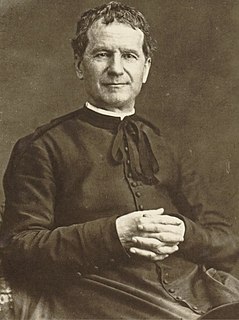A Quote by Genghis Khan
A man's greatest moment in life is when his enemy lays vanquished, his village aflame, his herds driven before you and his weeping wives and daughters are clasped to your breast.
Related Quotes
Be ever more convinced that your guardian angel is really present, that he is ever at your side. St. Frances of Rome always saw him standing before her, his arms clasped at his breast, his eyes uplifted to Heaven; but at the slightest failing, he would cover his face as if in shame, and at times, turn his back to her.
If we come to sleep we are His drowsy ones And if we come to wake we are in His hands If we come to weeping we are His cloud full of raindrops And if we come to laughing we are His lightning in that moment If we come to anger and battle it is the reflection of His wrath And if we come to peace and pardon it is the reflection of His love Who are we in this complicated world?
How much reverence has a noble man for his enemies!--and such reverence is a bridge to love.--For he desires his enemy for himself, as his mark of distinction; he can endure no other enemy than one in whom there is nothing to despise and very much to honor! In contrast to this, picture "the enemy" as the man of ressentiment conceives him--and here precisely is his deed, his creation: he has conceived "the evil enemy," "the Evil One," and this in fact is his basic concept, from which he then evolves, as an afterthought and pendant, a "good one"--himself!
A man who gives way to his passions is like a man who is shot by an enemy, catches the arrow in his hands, and then plunges it into his own heart. A man who is resisting his passions is like a man who is shot by an enemy, and although the arrow hits him, it does not seriously wound him because he is wearing a breastplate. But the man who is uprooting his passions is like a man who is shot by an enemy, but who strikes the arrow and shatters it or turns it back into his enemies heart.
I cannot define for you what God is. I can only say that my work has proved empirically that the pattern of God exists in every man and that this pattern has at its disposal the greatest of all his energies for transformation and transfiguration of his natural being. Not only the meaning of his life but his renewal and his institutions depend on his conscious relationship with this pattern of his collective unconscious.
In His discourses, His miracles, His parables, His sufferings, His resurrection, He gradually raises the pedestal of His humanity before the world, but under a cover, until the shaft reaches from the grave to the heavens, whenHe lifts the curtain, and displays the figure of a man on a throne, for the worship of the universe; and clothing His church with His own power, He authorizes it to baptize and to preach remission of sins in His own name.



































